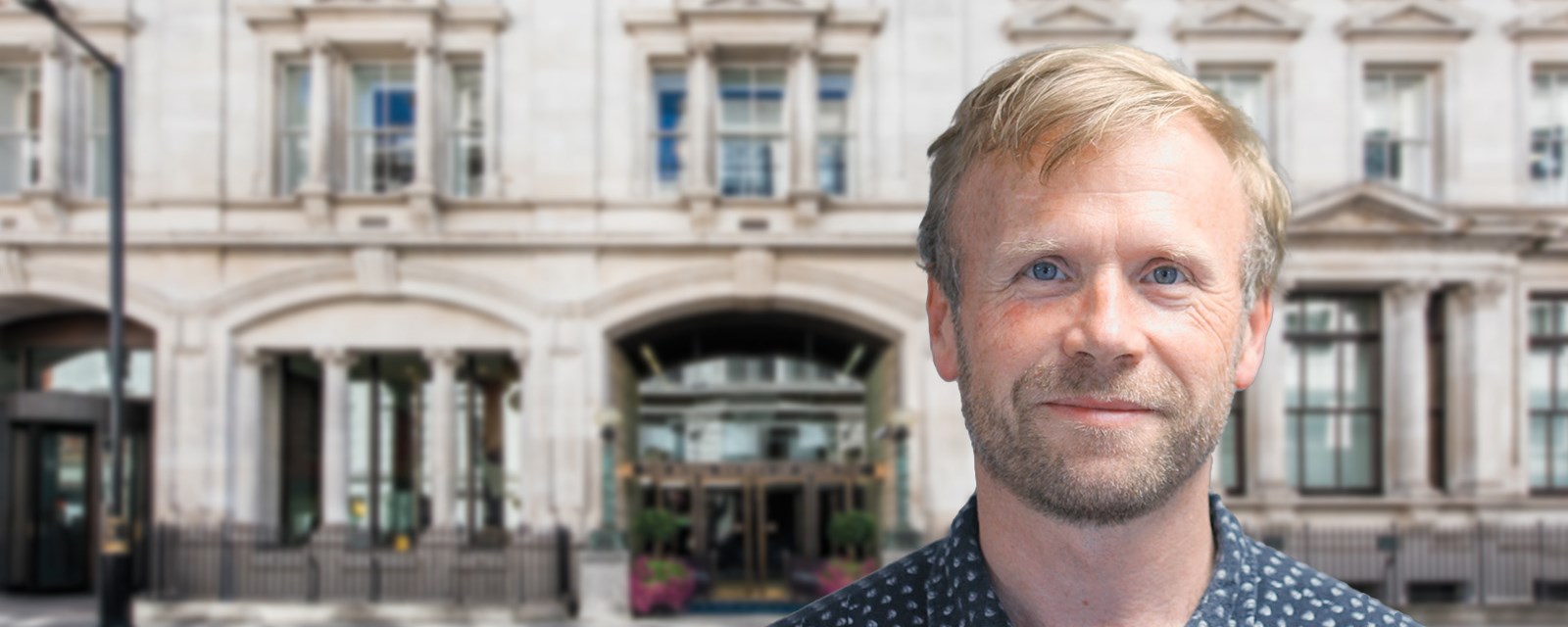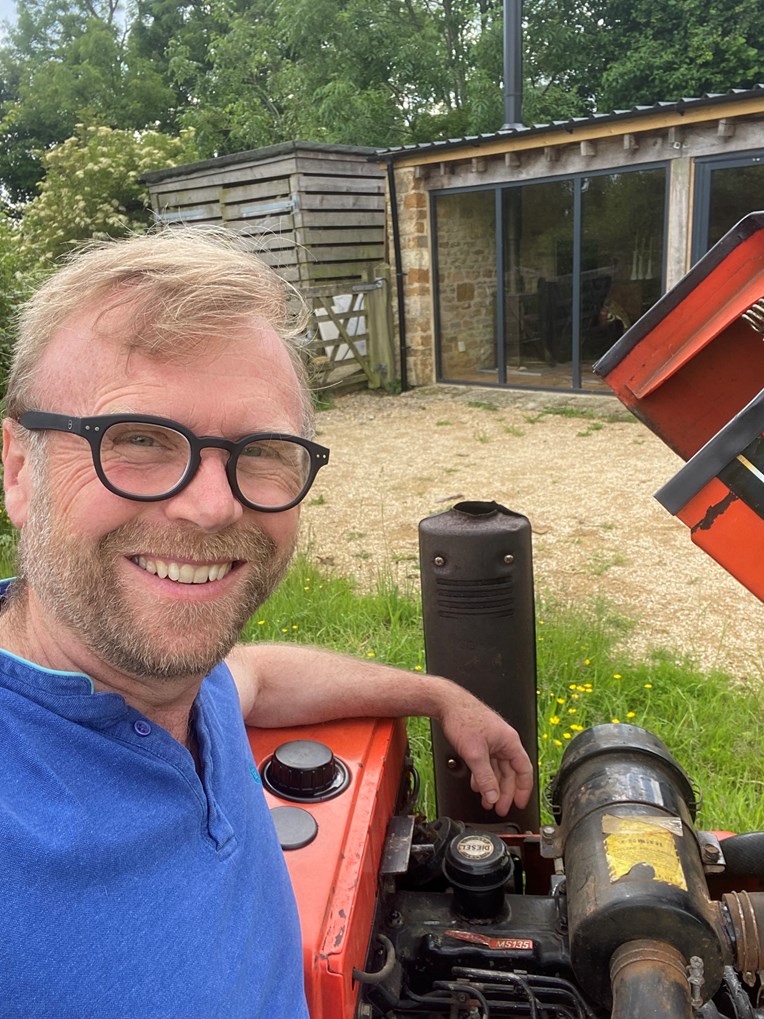
This much I’ve learnt: Dr Tim Ringrose
Former nephrologist and President of the RSM’s Digital Health Section, Dr Tim Ringrose, shares his obsession with taking things apart, how digital technology needs to be embedded in healthcare and the RSM as a hub for innovation.
When I was at school I thought I was going to be an engineer
I spent my childhood taking things apart and (mostly!) rebuilding them. I bought one of the first ZX Spectrum computers as a kit in 1981 and learned how to code. Family and friends all tried very hard to dissuade me from doing medicine, but I realised that humans were probably the most challenging machine of them all and decided medicine was for me.
Part of the attraction of renal disease was the kit involved
Surgery seemed the obvious career choice, but I was persuaded by the consultants I worked with as a junior doctor to go for medicine. After completing a research post in Newcastle, I began training in renal medicine at Oxford. Maybe part of the attraction of renal disease was the amount of complex kit involved, such as dialysis machines. After a little excursion into intensive care (again, has lots of machines) I was invited by my friend Dr Neil Bacon to join Doctors.net.uk, which he set up in 1998 to use the Internet as a tool to support the medical profession.
There’s always something new to learn
The emergence of new developments, such as artificial intelligence and blockchain, means that there is always something new to learn in digital health and the education events hosted by the RSM have been great for my own professional development. We’ve noticed an increasing number of delegates from around the world joining events at the RSM, no doubt attracted by its reputation as a leading hub for the promotion of innovation in the UK and internationally.
It’s difficult to effect change from inside the health system. For me it meant stepping out of the NHS
Sometimes working in healthcare feels like you’re constantly having to find workarounds in the system. Even when you can see how things could be done better it’s incredibly difficult to make changes. Working in digital health gives me a real buzz because you’re able to identify a problem, break it down, think about a solution, do some testing and have a working prototype in days. It’s tremendously invigorating to feel like you can actually make an impact.
If it wasn’t for the pandemic, the 26 million people using the NHS app today wouldn’t have signed up
Some of the technology that’s been brought in over the last few years has made an enormous difference in healthcare. When the NHS app was launched four years ago it was never expected that the 26 million people using it today would have signed up. The pandemic gave a compelling reason for people to use the app. We need to build on that.
Digital health has moved from a ‘nice to have’ into something that is vital for healthcare services the world over
It’s essential we use technology to find innovative ways of delivering healthcare services. The system simply can’t cope if we don’t change. Our mission for the RSM Digital Health Section is to help our clinical colleagues embed digital technologies in their own specialties and increasingly we are working in partnership with other sections. We champion sections to come and pitch their projects to the digital health community through cooperative forums and events, and we are currently collaborating on RSM education programmes on anticipatory and end of life care.
We probably now have the right balance of regulation for digital health services
The Apple campaign slogan ‘there’s an app for that’ created a problem for digital healthcare. There are hundreds of thousands of health apps and many of them are not very good quality. If you’re building an app for a sports shoe manufacturer the worst that can happen is that someone doesn’t get the right pair of trainers. With health it’s different and while we don’t want to stifle innovation by over-regulation, safety has to come first. The NHS Digital Technology and Assessment Criteria (DTAC), the NICE evidence standards framework for digital health technologies, and the new device regulations from the Medicines & Healthcare products Regulatory Agency (MHRA) should strike the right balance of regulation without inhibiting innovation.
Digital health needs multiple skills, clinical and non-clinical
While clinicians of all types need to be involved in digital health, it’s a sector that requires industry-wide skills. Currently we have commercial, technical, legal and academic representatives on the Digital Health Section Council, together with fund managers and advisers who give invaluable insights into what investors are looking for and what the right ways are to raise money. After all, if you’re a clinician with an idea, you need to know how to put together a business plan and what’s going to be important to investors.
I always encourage younger doctors interested in a career in digital health to practise medicine for at least a few years
I sometimes talk with doctors in their foundation training who are thinking of stopping their training because they want a career in digital health. I always try to encourage them to complete at least a few years of medical practice. It’s a tremendous benefit to have that grounding of knowing what life is really like in clinical practice. You get a much more positive response from doctors when you’re presenting new technologies if they know you understand where they’re coming from.
Digital tools like WhatsApp and Slack have transformed the way we organise the Digital Health Section
We wouldn’t be without WhatsApp and Slack now for organising ourselves as a Section Council, particularly since we are all volunteering our time to run RSM events. I am having more in-person meet-ups these days though. Only the other day I was at the RSM, meeting with potential sponsors. Although we had lots of conversations by phone and online beforehand, meeting face-to-face felt like the right way to cement the relationship.

Tim Ringrose on his tractor
I’ll always be obsessed with making machines work
I like getting my hands on any bit of machinery that needs fixing. My current project is a broken-down tractor on my smallholding which I’m itching to get working again.
Transforming care digitally: Anticipatory care planning will take place at the Royal Society of Medicine on Monday 4 July. Hosted by the RSM Sections of Digital Health and Geriatrics and Gerontology, the event will examine the new Department of Health and Social Care Anticipatory Care Planning policy.
